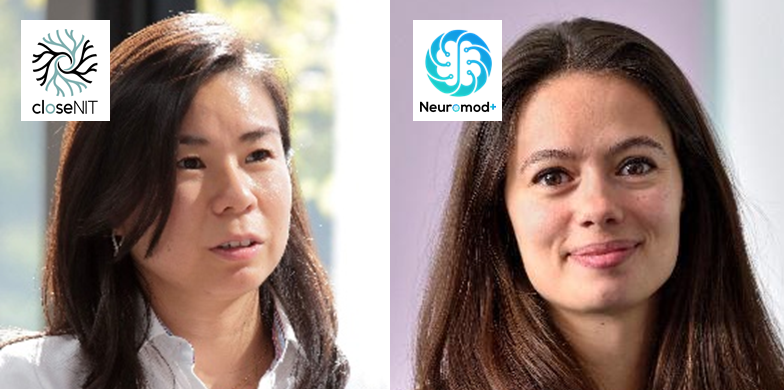
- This event has passed.
UKSNN research showcase seminar: Wako Yoshida and Sophie Morse

Join us for an extra online session of the UK Symposium on Neuromodulation and Neurotechnology, hosted jointly by Neuromod+ and CloseNIT networks. This session will showcase the research of network awardees Wako Yoshida and Sophie Morse (talks postponed from the main symposium in September).
Joining details: https://newcastleuniversity.zoom.us/j/88546378946 | Passcode: 768982
Wako Yoshida: Adaptive closed-loop fMRI neurofeedback for social learning
People with autism spectrum disorders have behavioural differences, including in social learning and theory of mind. Amongst other things, this has been proposed to have a negative impact on learning in educational contexts, which often relies heavily on dynamic human-human interaction.
To better understand how to help support social learning, and explore the potential for developing a ‘brain-in-the-loop’ closed-loop BMI system to assist people with these social behavioural differences, we developed a neurofeedback system using real-time fMRI signals.
We implemented an observational learning task in which people learn from others by observing their actions and applying this knowledge to their own behaviour and developed a computational model of learning in this task. We found that the inferior frontal gyrus appears to integrate observed information with information based on one’s own experience. We designed and conducted preliminary task-based neurofeedback experiments to control this activity.
Wako is a research fellow at the University of Oxford, working in computational cognitive and social sciences. She received her PhD from NAIST, and has worked at ATR, UCL and Cambridge University, and worked as an Associate Professor at Kyoto University prior to joining Oxford University. Her research addresses the computational neuroscience of human cognitive decision making and social interaction, with a particular focus on the function of the prefrontal cortex. In recent years, she has been involved in a number of research projects, including ‘hyperscanning’, in which two subjects interact (cooperate) in separate fMRI scanners to solve tasks together; real-time neurofeedback experiments on social learning; VR experiments to understand learning mechanisms during sleep; and human brain during complex decision-making tasks. Her team is engaged in research to elucidate human brain activity during complex decision-making tasks.
Sophie Morse: Ultrasound Modulation of Neurons and Glia
In this talk, I will showcase my group’s work in modulating the activity of neurons and glia, and in building a device for simultaneous ultrasound modulation and 2/3-photon imaging in vivo to better understand the mechanisms behind such modulation.
Sophie completed her PhD in Bioengineering at Imperial College London, developing a non-invasive focused ultrasound technology to deliver drugs to the brain efficiently and safely. She was then awarded an EPSRC doctoral prize fellowship and has more recently become an Imperial College Research Fellow and an Emerging Leader within the UK Dementia Research Institute. She currently leads an interdisciplinary group at Imperial focused on modulating the activity of glial cells in the brain to delay and treat brain diseases.